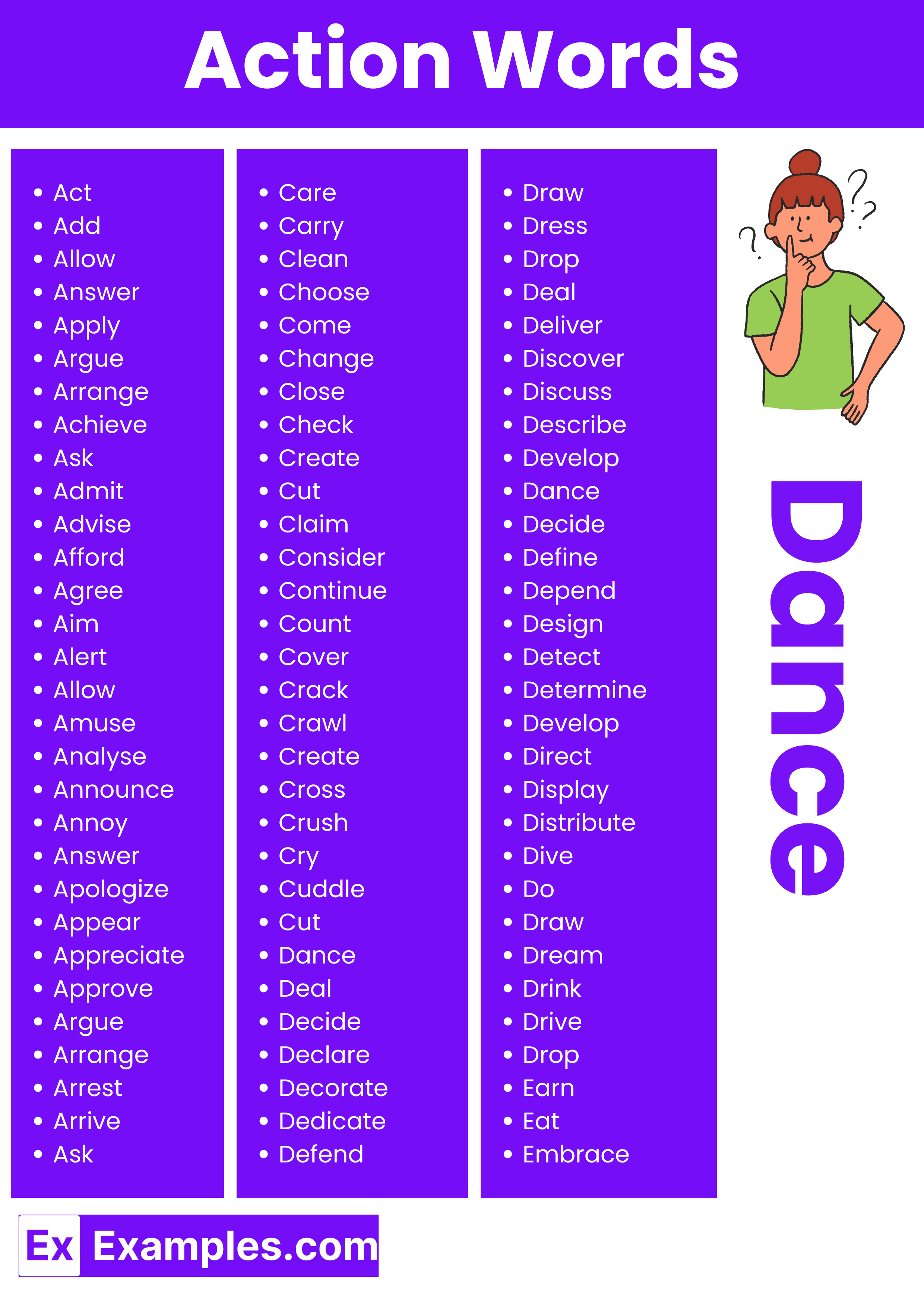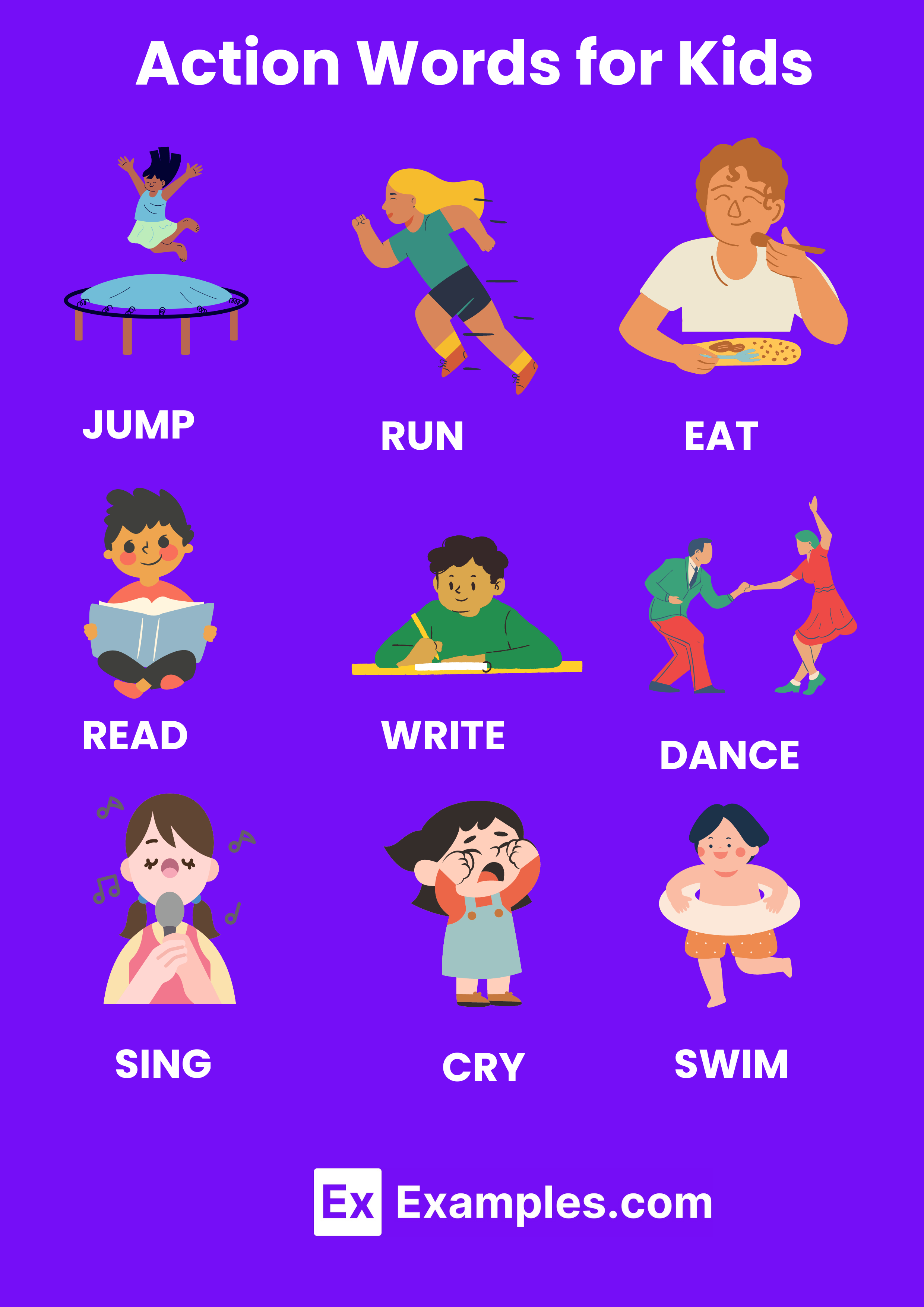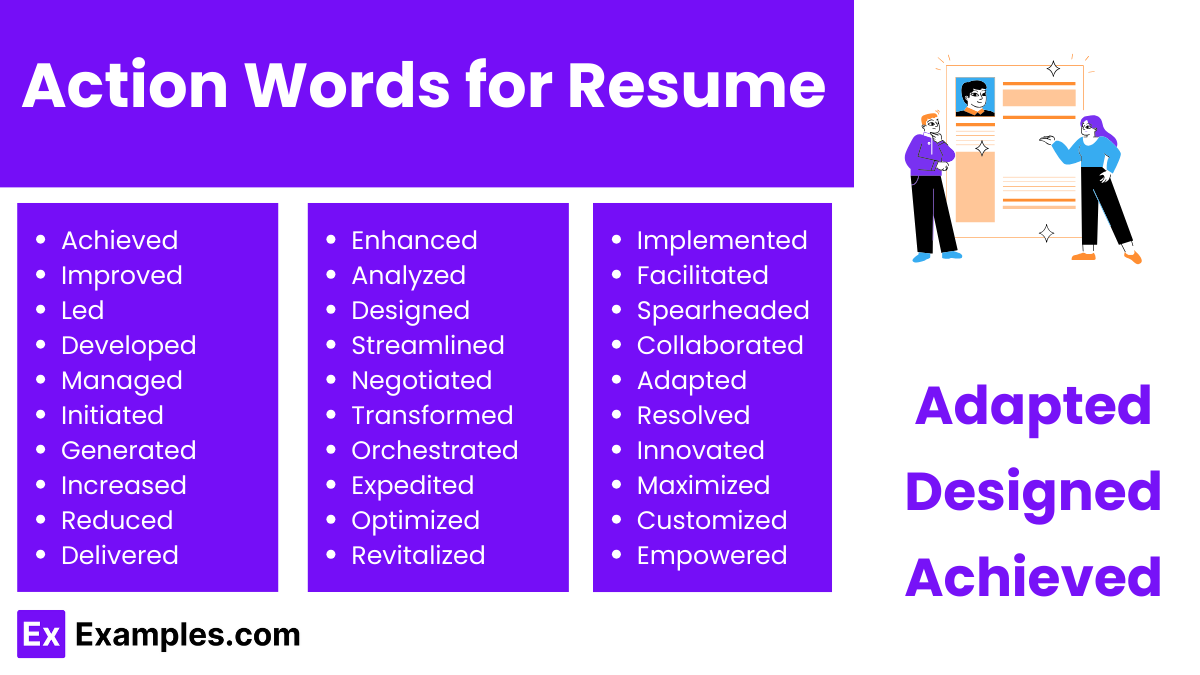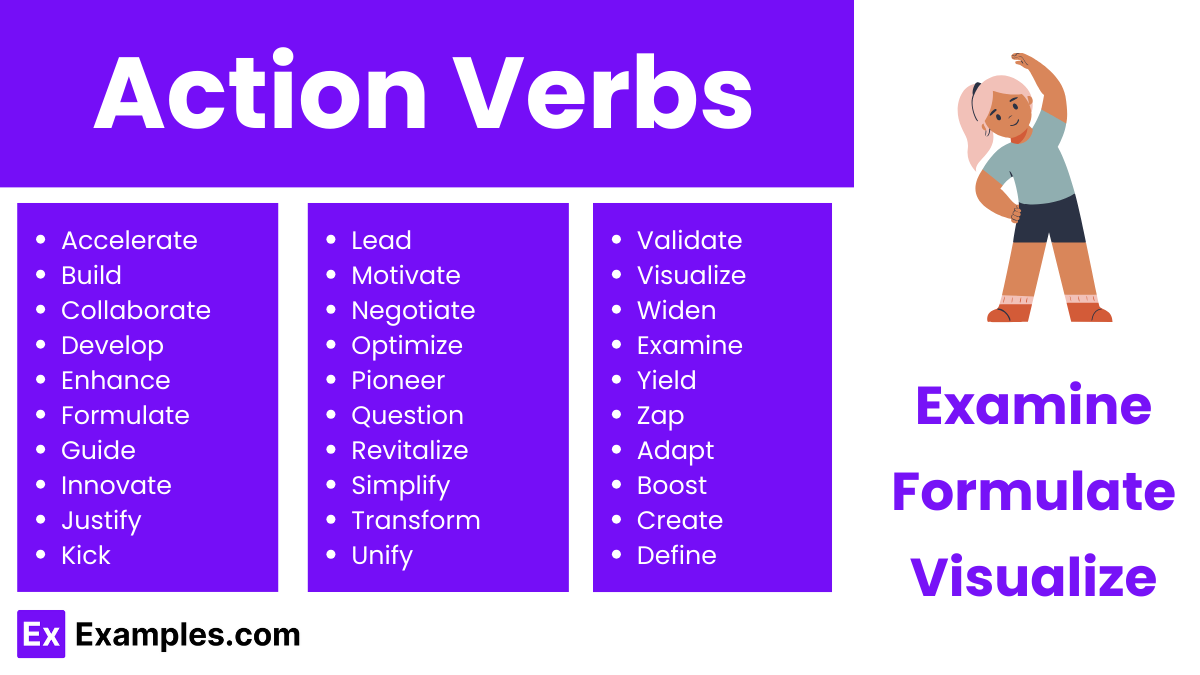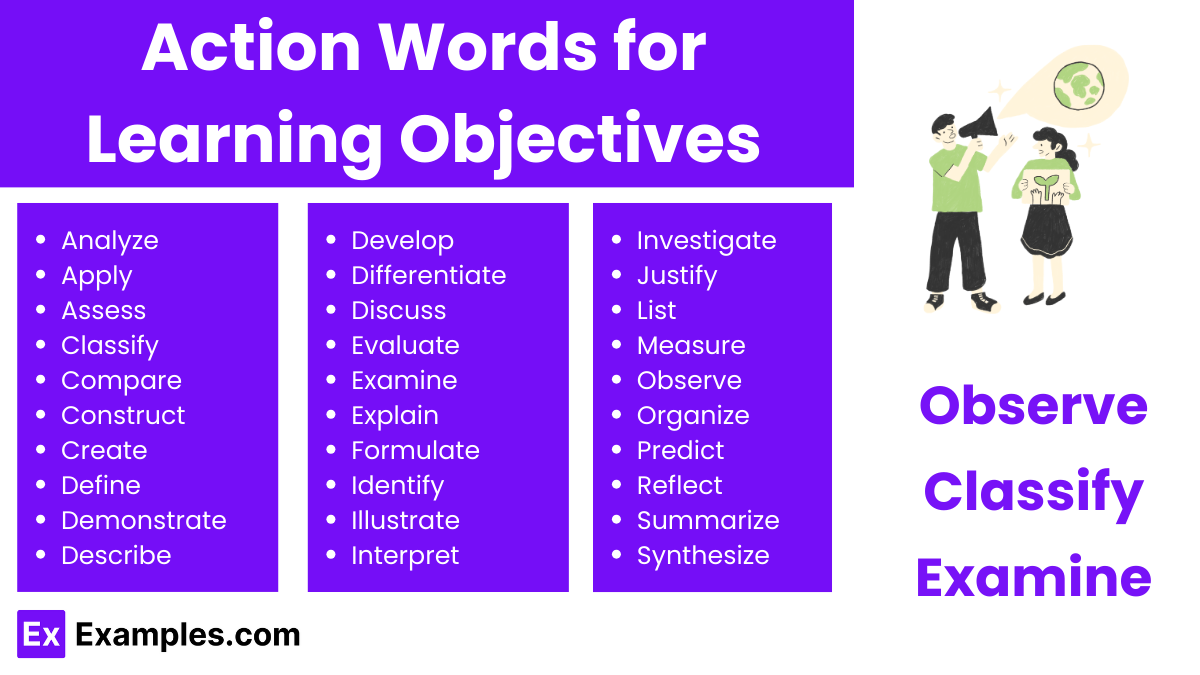450+ Action Words List, Meaning, PDF
In the vibrant world of language, action words stand as the beating heart, infusing sentences with energy and clarity. These dynamic verbs are the catalysts that transform passive text into compelling narratives, propelling readers through the journey of your content. Whether it’s to persuade, inform, or entertain, leveraging action words can significantly enhance the impact of your writing. They are the secret ingredient that can turn mundane descriptions into vivid scenes, making your message not just heard, but felt. Engage with the power of action words and watch your writing come alive, capturing the imagination and attention of your audience like never before.
Most Commonly used a Action Words
Action words, or verbs, are the backbone of compelling writing and effective communication. They breathe life into sentences, transform static narratives into thrilling adventures, and turn passive descriptions into active showcases. Whether you’re crafting an engaging story, composing a persuasive essay, or developing powerful marketing content, the right action words can set the tone, pace, and energy of your message.
| Act | Break | Care | Draw | Eat | Fly |
| Add | Buy | Carry | Dress | Enter | Fail |
| Allow | Bring | Clean | Drop | Earn | Feel |
| Answer | Become | Choose | Deal | End | Find |
| Apply | Begin | Come | Deliver | Enjoy | Fit |
| Argue | Believe | Change | Discover | Estimate | Follow |
| Arrange | Borrow | Close | Discuss | Exercise | Fight |
| Achieve | Beat | Check | Describe | Explain | Fill |
| Ask | Benefit | Create | Develop | Expect | Finish |
| Admit | Complete | Cut | Dance | Extend | Fix |
| Advise | Compare | Claim | Decide | Encourage | Formulate |
| Afford | Contribute | Consider | Define | Engage | Furnish |
| Agree | Control | Continue | Depend | Ensure | Freeze |
| Aim | Convince | Count | Design | Evaluate | Function |
| Alert | Cook | Cover | Detect | Examine | Gain |
| Allow | Correct | Crack | Determine | Excite | Generate |
| Amuse | Cost | Crawl | Develop | Exhibit | Get |
| Analyse | Count | Create | Direct | Expand | Give |
| Announce | Cover | Cross | Display | Expect | Go |
| Annoy | Crack | Crush | Distribute | Experience | Grow |
| Answer | Crash | Cry | Dive | Explain | Guard |
| Apologize | Create | Cuddle | Do | Express | Guess |
| Appear | Cross | Cut | Draw | Extend | Guide |
| Appreciate | Crush | Dance | Dream | Face | Handle |
| Approve | Cry | Deal | Drink | Fail | Hang |
| Argue | Cut | Decide | Drive | Fall | Happen |
| Arrange | Damage | Declare | Drop | Feed | Heal |
| Arrest | Dance | Decorate | Earn | Feel | Hear |
| Arrive | Deal | Dedicate | Eat | Fight | Help |
| Ask | Decide | Defend | Embrace | Find | Hide |
| Assert | Declare | Deliver | Employ | Finish | Hit |
| Assume | Decorate | Demand | Enable | Fit | Hold |
| Assure | Decrease | Deny | Encourage | Fix | Hop |
| Attach | Dedicate | Describe | Ensure | Flee | Hope |
| Attack | Defeat | Design | Entertain | Float | Hug |
| Attempt | Deliver | Destroy | Establish | Fly | Hurry |
| Attend | Demand | Determine | Evaluate | Fold | Ignore |
| Attract | Deny | Develop | Examine | Follow | Imagine |
| Avoid | Depart | Dictate | Excite | Force | Impress |
| Awaken | Depend | Die | Execute | Foresee | Improve |
| Bake | Describe | Differ | Exhibit | Forget | Include |
| Balance | Destroy | Direct | Expand | Forgive | Incorporate |
| Ban | Determine | Disagree | Expect | Form | Increase |
| Bang | Develop | Discover | Explain | Found | Indicate |
| Bargain | Die | Discuss | Express | Frame | Influence |
| Bat | Differ | Dismiss | Extend | Free | Inform |
| Be | Direct | Display | Face | Freeze | Initiate |
| Bear | Disappear | Disturb | Fail | Fry | Inject |
| Beat | Discover | Divide | Fall | Fulfill | Inquire |
| Become | Discuss | Do | Feed | Gain | Insert |
| Beg | Dislike | Draw | Feel | Gather | Inspect |
| Begin | Display | Dream | Fight | Generate | Inspire |
| Behave | Dispute | Dress | Find | Get | Install |
| Belong | Distract | Drink | Finish | Give | Institute |
| Bend | Disturb | Drive | Fit | Go | Instruct |
| Bet | Divide | Drop | Fix | Grow | Intend |
| Bind | Do | Dwell | Flee | Guard | Introduce |
| Bite | Doubt | Earn | Fling | Guess | Invent |
| Bleed | Draw | Eat | Fly | Guide | Invest |
| Blow | Dream | Embrace | Fold | Handle | Invite |
Action Words for Kids
Introducing action words to kids is a fundamental step in expanding their vocabulary and comprehension. These verbs, or action words, are pivotal in constructing sentences that are vibrant and full of life. Teaching children about action words not only boosts their linguistic skills but also aids in their cognitive development, allowing them to express their thoughts and actions more effectively. By incorporating action words in their daily learning, kids can enhance their communication abilities, making their storytelling more engaging and imaginative. This enriching process is vital for early language learning, setting a strong foundation for their future communication skills.
- Jump – To spring off the ground using one’s legs.
- Run – To move swiftly on foot.
- Eat – To consume food.
- Read – To look at and comprehend the meaning of written or printed matter.
- Write – To form letters, words, or symbols on a surface in order to communicate.
- Sing – To vocalize musical tones and melodies.
- Dance – To move rhythmically to music, typically following a set sequence of steps.
- Play – To engage in activity for enjoyment and recreation rather than a serious or practical purpose.
- Laugh – To make spontaneous sounds and movements of the face and body that are the instinctive expressions of lively amusement and sometimes also of contempt or derision.
- Cry – To shed tears as an expression of emotion, such as sadness or joy.
- Draw – To produce (a picture or diagram) by making lines and marks on paper with a pencil, pen, etc.
- Paint – To apply color to a surface using a brush.
- Build – To construct by assembling and joining parts or materials.
- Climb – To ascend or go up using the feet and often the hands.
- Swim – To propel oneself in water by movement of the limbs, fins, tail, etc.
- Listen – To give attention with the ear to a sound or speech.
- Watch – To observe attentively or carefully; to be spectator of.
- Help – To give assistance or support to.
- Hug – To squeeze someone in one’s arms as a gesture of affection.
- Find – To discover or perceive by chance or unexpectedly.
- Throw – To propel through the air with a motion of the hand or arm.
- Catch – To capture after pursuit or in a trap.
- Kick – To strike with the foot or feet.
- Whisper – To speak very softly using one’s breath without one’s vocal cords, especially for the sake of privacy.
- Shout – To call or cry out loudly and vigorously.
- Clean – To make something free of dirt, marks, or mess, especially by washing, wiping, or brushing.
- Open – To move or adjust a door, window, or lid so that it is no longer closed or obstructed.
- Close – To move so as to cover an opening; to shut.
- Fix – To repair or correct something.
- Carry – To hold or support while moving; to bear the weight of
Action Words for Resume
Crafting a resume that stands out demands more than listing your experiences; it requires articulating them with vigor and precision. Action words for resumes are your arsenal in this endeavor, transforming passive summaries into compelling tales of achievement and capability. These powerful verbs depict your contributions in a way that captivates and convinces hiring managers of your potential. By strategically incorporating resume action words, you not only showcase your qualifications but also demonstrate your proactive approach and ability to deliver results.
- Achieved – Accomplished a goal or objective
- Improved – Made something better or more effective
- Led – Guided a team or project towards a goal
- Developed – Created or enhanced something
- Managed – Oversaw and directed operations or tasks
- Initiated – Started or launched something new
- Generated – Produced or caused to exist
- Increased – Made larger in size, volume, or quantity
- Reduced – Decreased in size, quantity, or cost
- Delivered – Successfully carried out or conveyed
- Enhanced – Improved the quality, value, or extent of
- Analyzed – Examined in detail for purposes of explanation and interpretation
- Designed – Conceived and planned out in detail
- Streamlined – Made more efficient or effective by simplifying
- Negotiated – Reached an agreement through discussion
- Transformed – Changed significantly or fundamentally
- Orchestrated – Arranged or directed to achieve a desired effect
- Expedited – Made happen sooner or more efficiently
- Optimized – Made as effective, perfect, or useful as possible
- Revitalized – Imparted new life or vigor into
- Implemented – Put into effect or action
- Facilitated – Made an action or process easier
- Spearheaded – Led an initiative or campaign
- Collaborated – Worked jointly on an activity or project
- Adapted – Modified for a new use or purpose
- Resolved – Found a solution to a problem
- Innovated – Introduced something new or different
- Maximized – Made as large or great as possible
- Customized – Modified to suit a particular individual or task
- Empowered – Gave authority or power to
Action Verbs
Action verbs are pivotal in crafting dynamic and engaging content. By integrating these powerful words, you enhance clarity and inject momentum into your prose, making it more accessible and compelling. These verbs serve as the backbone of effective communication, transforming static descriptions into vibrant narratives. Whether you’re aiming to improve your writing or boost your resume, incorporating action verbs can significantly elevate your language, making every sentence leap off the page. Discover how to harness the energy of these verbs to captivate and persuade your audience, ensuring your messages are not just seen, but remembered.
- Accelerate – to speed up the progress of something
- Build – to construct by putting parts or materials together
- Collaborate – to work jointly on an activity or project
- Develop – to grow or cause to grow and become more mature or advanced
- Enhance – to intensify, increase, or further improve the quality or value of something
- Formulate – to create or devise methodically (a strategy or a proposal)
- Guide – to direct or influence the course of action
- Innovate – to make changes in something established, especially by introducing new methods or ideas
- Justify – to show or prove to be right or reasonable
- Kick-start – to start or reinvigorate an activity, process, or idea
- Lead – to guide or direct in a course
- Motivate – to provide with a reason to do something; to inspire
- Negotiate – to deal or bargain with others for a mutual agreement
- Optimize – to make the best or most effective use of a situation or resource
- Pioneer – to develop or be the first to use or apply (a new method, area of knowledge, or activity)
- Question – to ask questions or express doubt about something
- Revitalize – to imbue something with new life and vitality
- Simplify – to make something easier to do or understand
- Transform – to make a thorough or dramatic change in the form, appearance, or character of
- Unify – to make or become united, uniform, or whole
- Validate – to check or prove the validity or accuracy of something
- Visualize – to form a mental image of; imagine
- Widen – to make or become wider
- Examine – to inspect or scrutinize carefully
- Yield – to produce or provide (a natural, agricultural, or industrial product)
- Zap – to destroy or obliterate
- Adapt – to make something suitable for a new use or purpose; modify
- Boost – to help or encourage (something) to increase or improve
- Create – to bring something into existence
- Define – to clearly state or describe the exact nature, scope.
Action Words for Learning Objectives
Creating effective learning objectives is pivotal for educational success, guiding both instruction and assessment. Utilizing specific action words can significantly enhance the clarity and focus of these objectives, ensuring learners understand the expected outcomes. This guide spotlights 30 action words essential for crafting precise learning objectives. These verbs, rich in instructional value, are tailored to foster engagement and measure learning progress across various subjects and skills.
- Analyze: To examine in detail to understand elements, relationships, and influences.
- Apply: To use knowledge or skills in practical situations.
- Assess: To evaluate or estimate the nature, ability, or quality of.
- Classify: To arrange or organize according to class or category.
- Compare: To note the similarity or dissimilarity between.
- Construct: To build or make something methodologically.
- Create: To bring something into existence.
- Define: To state the exact meaning of a word or phrase.
- Demonstrate: To show clearly by giving proof or evidence.
- Describe: To give a detailed account in words.
- Develop: To elaborate or expand in detail.
- Differentiate: To recognize or ascertain what makes something different.
- Discuss: To talk about a topic in detail.
- Evaluate: To judge or determine the significance, worth, or quality of.
- Examine: To inspect or scrutinize carefully.
- Explain: To make clear to someone by describing it in more detail.
- Formulate: To create or devise methodically.
- Identify: To recognize and name.
- Illustrate: To make clear by using examples, charts, or diagrams.
- Interpret: To explain the meaning of.
- Investigate: To carry out research or study closely.
- Justify: To show or prove to be right or reasonable.
- List: To make a series of items in order.
- Measure: To ascertain the size, amount, or degree of something.
- Observe: To notice or perceive something and register it as being significant.
- Organize: To arrange into a structured whole.
- Predict: To say or estimate that a specified thing will happen in the future.
- Reflect: To think deeply or carefully about.
- Summarize: To give a brief statement of the main points.
- Synthesize: To combine into a coherent whole
Action Speaks Louder Than Words: Embodying Your Intentions
In the realm of effective communication, the adage “action speaks louder than words” underscores the paramount importance of tangible actions over mere promises or statements. This principle advocates for the power of behavior and deeds to convey intentions and commitments more forcefully than words alone. Embrace this guide to understand and integrate 30 key actions that exemplify this ethos, enriching your personal and professional relationships. Through these examples, learn how to manifest your values and intentions vividly, ensuring your actions consistently align with your words for genuine, impactful interactions.
- Volunteering: Offering your time and skills for the benefit of others without expecting anything in return.
- Listening: Giving your undivided attention to others, showing genuine interest in their words.
- Apologizing: Demonstrating remorse through actions, not just by saying “I’m sorry.”
- Helping: Proactively assisting others in need, showcasing empathy and compassion.
- Donating: Contributing resources or money to causes, highlighting your commitment to giving back.
- Teaching: Sharing knowledge and skills, proving your dedication to others’ growth.
- Committing: Sticking to your promises and obligations, revealing reliability and trustworthiness.
- Protecting: Safeguarding others from harm, reflecting your sense of responsibility.
- Encouraging: Providing support and motivation through actions, uplifting those around you.
- Sharing: Distributing your possessions with others, demonstrating generosity.
Harnessing the power of action words is essential for dynamic and effective writing. By incorporating these 300 action verbs into your vocabulary, you’ll add vibrancy and clarity to your narratives, essays, and communications. Elevate your writing by choosing precise, impactful verbs that breathe life into your sentences, engaging your readers with compelling and memorable content.




